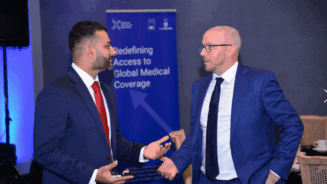Robo-advice impact
GCI Group chief executive officer Alex Cook, on the other hand, is excited about the prospects of robo-advice and is of the view that advisers should be as well.
Cook said technology is changing the client relationship across the board, in terms of customer relationship management, commission and marketing systems.
“The robo-advice space is fascinating. If you look at what is successful abroad, it has not been the pure robo-advice platforms but the more hybrid models – a hybrid of both real advice and robo-advice. This is true in many other aspects of our lives as well.”
Comparing robo-advice to his experience of seeking a medical diagnosis online before visiting his doctor, Cook said that clients are increasingly knowledgeable about products and advisers need to be prepared for this.
“Even though I knew exactly what I had to do, having diagnosed my ailment online, I still approached the doctor afterwards. This is going to be true in financial spaces as well. Robo is important, but real is going to remain equally as important.”
Adapt or die
Cook was echoing the thoughts of Craig Featherby, group managing director at Carrick Wealth, who at the Johannesburg event said that while robo-advice will play a much bigger role in the future, there are certain human interactions that can never be replaced by algorithms.
Featherby said it is important to acknowledge that technological change in the financial services sector is inevitable. He said: “Business as we know it will be radically different a decade or two from now, and you have to adapt or die without forsaking the human factor.”
Cook added that while face-to-face advice will remain important, it is being affected by the growing regulatory burden under which advisers now work.
While highlighting the benefits of recent legislation governing advice, Cook said there have been negative affects as well, in particular the amount of time now needed to ensure advice meets all of the necessary compliance requirements.
“Advisers are spending more time on compliance and choosing portfolios, and it is detracting from the amount of time they are spending on their clients. It is decreasing the margin in their business. This, in turn, is forcing the aggregation of practices, which we expect to continue,” he said.
For Smorenburg, the question of due diligence is an important one to which all independent financial advisers should be paying close attention.
Keeping it simple
He said that while there are differing views on what exactly constitutes due diligence, it boils down to advisers treating their clients fairly. Advisers, he said, need to be able to justify the products they recommend.
At one end of the scale, Smorenburg said, an adviser might justify their proposal by saying they had “attended a conference run by the provider”, while at the other end, due diligence requirements set out in the UK in November last year include a comprehensive questionnaire advisers must complete.
“SAIFAA has 28 important questions we pose to product providers on behalf of members, but that is by no means a coverall; it is an attempt to help address the challenge currently facing advisers,” Smorenburg said.
Cook added that it is only likely to become more complicated in the South African market as the number of products grows. “Locally, it is very easy,” he said. “We have 1,400 unit trusts. Abroad there are about 200,000 unit trusts.”
It is for this reason he expects to see fund consultancy rise in prominence in the South African market. In terms of trying to acclimatise to changes in both the legislative and technological arenas, Oosthuizen said the key is in keeping things simple.
He said: “Sometimes, we are so focused on regulations and legislation. Do we have control over either? Not really. But you have control of how to react to them.
“When you look back, you will see your industry is actually better for the change. You will also see that people doing the right thing will be there tomorrow and will survive. In summary, do not be afraid. Just do the right thing.” LW




